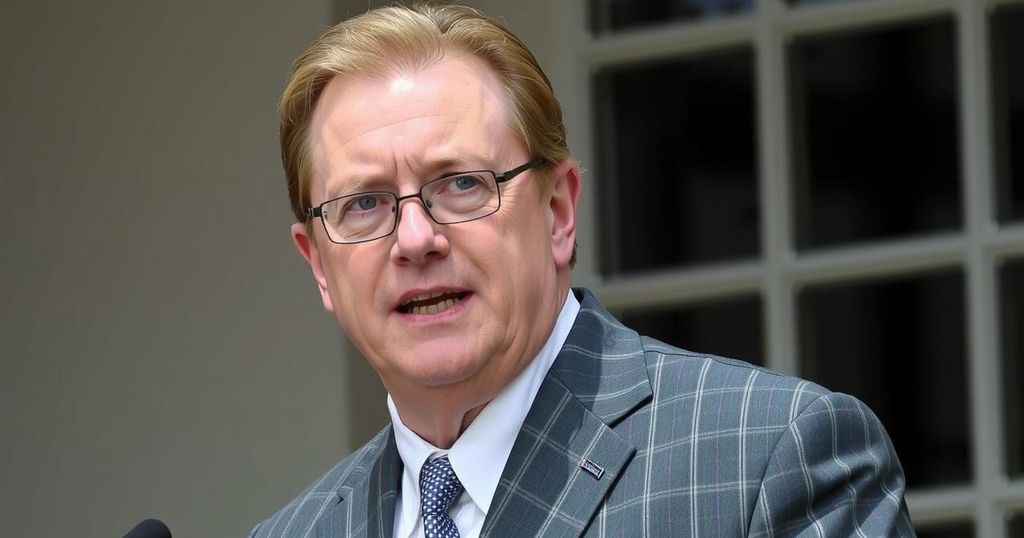Germany accuses Elon Musk of attempting to influence parliamentary elections by endorsing the far-right Alternative for Germany (AfD), sparking criticism from government officials regarding the effects of such endorsements on electoral integrity.
On Monday, senior officials from the German government leveled accusations against Elon Musk, founder of Tesla, asserting that he is attempting to meddle in the upcoming parliamentary elections in Germany by endorsing the far-right Alternative for Germany (AfD) party. They criticized Musk’s recent social media endorsements and a weekend op-ed in which he expressed strong support for the AfD’s economic policies. This endorsement comes at a critical time, just weeks before Germany’s snap elections are set to take place in February.
Musk’s portrayal of the AfD as a viable option for fostering a fiscally responsible economy drew significant ire from German officials. They argued that his interventions were clearly aimed at influencing public opinion in Germany rather than merely expressing personal views. “It is indeed the case that Elon Musk is trying to influence the federal election,” stated Christiane Hoffmann, a spokesperson for the German government. Hoffmann acknowledged the right to free expression but noted, “After all, freedom of opinion also covers the greatest nonsense.”
In his commentary, Musk harshly criticized German Chancellor Olaf Scholz, labeling him a “fool,” and made bold claims regarding the AfD, suggesting they were the only party with a plan to rejuvenate the German economy, cultural integrity, and technological progress. He defended the AfD against accusations of extremism by pointing to the personal life of the party’s leader, Alice Weidel, stating, “Does that sound like Hitler to you? Please!” Musk’s remarks, however, have drawn significant backlash from both U.S. lawmakers and German officials, particularly given the AfD’s established reputation concerning far-right ideologies.
The AfD has denied being categorized as a neo-Nazi group, despite the significant rejections from all mainstream German political entities to collaborate with them. In response to accusations of extremism, Karl Lauterbach, Germany’s health minister and member of the Social Democratic Party, deemed Musk’s involvement as “undignified and highly problematic.” Notably, the op-ed in which Musk articulated these views was published in a center-right newspaper, leading to criticism within the media, including the resignation of the opinion editor. Despite the backlash, Musk remains steadfast in his declarations, asserting that traditional parties in Germany have failed the nation, and labeling the AfD as “the last spark of hope for this country.”
This controversy emerges as Germany prepares for its upcoming snap parliamentary elections, intensifying scrutiny over foreign influence in domestic politics. Elon Musk’s endorsement of the AfD, a party characterized by its far-right views and described by many as extremist, raises serious concerns within Germany regarding electoral integrity and national sovereignty. The German government has taken a strong stance against the AFd, insisting that mainstream parties must not be associated with ideologies promoting hatred and division. Musk’s influential platform and vast audience present challenges for policymakers attempting to safeguard their electoral process.
In summary, Elon Musk’s recent comments endorsing the Alternative for Germany party have prompted significant backlash from German officials, who allege that his intent is to sway the forthcoming elections. Despite these accusations, Musk maintains his position, asserting that the AfD could restore economic strength to Germany. The reaction from both U.S. and German officials underscores the sensitivity surrounding foreign influences in national elections, especially from a figure such as Musk. The implications of this situation will likely resonate beyond the immediate electoral context.
Original Source: www.foxnews.com






